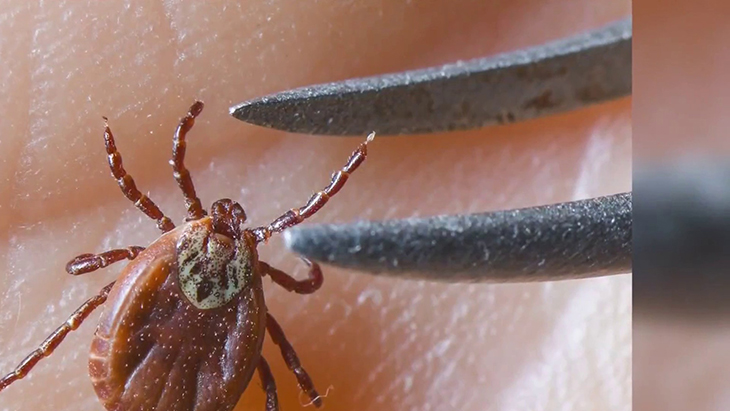
The era of triumph over some of the most debilitating pathogenic diseases appears to be on the horizon, courtesy of an innovative category of immunizations designed to reshape the gut microbiome of ticks and mosquitoes.
In contrast to conventional approaches that directly combat the disease-causing pathogens, these groundbreaking vaccines focus on the microbes essential for the survival of these pathogens. A recent investigation centered around such a vaccine has showcased remarkable success in mice subjects.
While the journey from vaccine development to human application typically spans 8 to 10 years of rigorous testing, a parallel vaccine deployment for animals like dogs, cats, and livestock could be expedited. This acceleration holds the potential to offer considerable relief to pet owners by curtailing veterinary expenses and to ranchers by preventing substantial financial losses.
Lyme disease, a condition well-known for its incapacitating effects, is primarily caused by the Borrelia genus. This ailment can render humans and animals feeble and bedridden for extended periods. Prior research has highlighted the ability of Borrelia pathogens to manipulate the gut microbiome of ticks, their primary carriers.
A recent study disclosed that through the administration of a benign E. coli bacterium, strategically acting as a Trojan horse, mice were triggered to mount an immune response within the gut of the ticks. This immune response significantly reduced the levels of Escherichia-Shigella, a prevalent bacterial taxa shared among mice and humans.
The outcome was a notable impairment in the survival capabilities of Borrelia afzelii, a prominent contributor to Lyme disease, within its tick host. Consequently, the vaccinated mice were shielded from the disease.
This vaccination strategy aligns with the emergent classification of medications known as anti-microbiota vaccines. A similar rationale is being harnessed for addressing malaria and the Plasmodium pathogens accountable for its occurrence.
In the previous year, scientists achieved a parallel feat by introducing a vaccine targeting Enterobacteriaceae into domestic canaries. This intervention yielded comparable efficacy. Subsequent feeding by Southern house mosquitoes on these vaccinated birds led to the development of a hostile gut microbiome, detrimental to the Plasmodium relictum malaria strain.
These advances mark a pivotal juncture in disease control, signifying a shift from directly combating pathogens to strategically reshaping microbial ecosystems as a means to curb disease transmission.
“These antimicrobiota vaccines are interesting for other pathogens because they specifically target the vector microbiota,” Dr. Alejandro Cabezas-Cruz told Newsweek. He is an infectious disease researcher as well as an author on both the tick and mosquito papers.
“By affecting the development of pathogens in vectors, this vaccine could help reduce vector competence and thus reduce the transmission of diseases, such as Lyme,” Cabezas-Cruz said. “Although the research, regulation and approval process can take about 10 years for humans, it is possible that it will be applied more quickly in animals, especially in livestock. This promising approach offers new perspectives for the prevention of vector-borne diseases.”
“As the microbiota is essential for many vector-borne pathogens, this approach could be used to target a wide range of diseases, whether caused by viruses, parasites, or bacteria.”
“For example, for malaria, studies have shown that vaccinating birds with bacteria from the mosquito microbiota resulted in a strong reduction in the parasite Plasmodium sp. in mosquitoes, potentially limiting disease transmission.”
There’s a great deal to consider, as mosquitoes and ticks transmit more than just Lyme disease and malaria. This situation underscores, once more, the vital role the gut microbiome plays in the well-being of all living beings.



